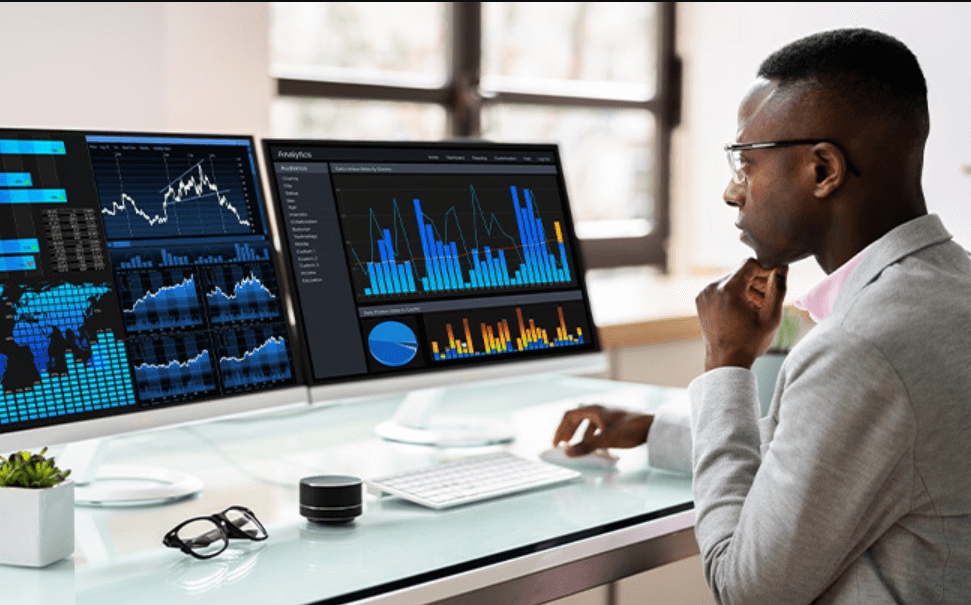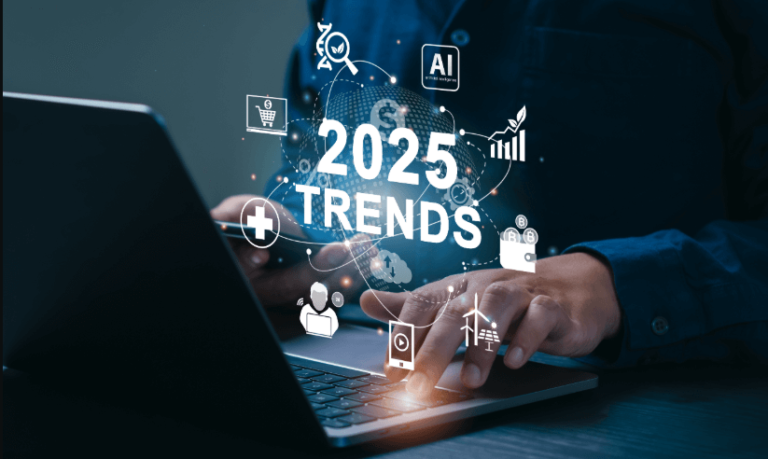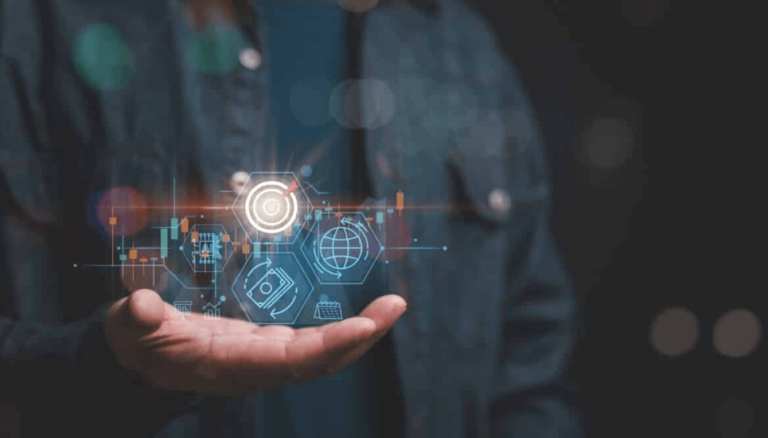Technology in 2025: Shaping the Future

Technology continues to evolve at an unprecedented pace, transforming how we live, work, and interact. From artificial intelligence (AI) to cloud computing, 5G, the Internet of Things (IoT), and blockchain, innovations are reshaping industries, businesses, and everyday experiences. Staying updated with technology trends in 2025 is essential for individuals and organizations seeking to remain competitive and embrace the latest innovations.
This article explores the key technology trends of 2025, their benefits, and how they are redefining our world.
Artificial Intelligence: Powering Smarter Decisions
Artificial Intelligence has emerged as a transformative force across multiple sectors. AI systems analyze large datasets, recognize patterns, and make decisions faster than humans.
- Healthcare: AI assists in early diagnosis, robotic surgeries, and personalized treatments.
- Business: Companies leverage AI chatbots, predictive analytics, and automation to enhance customer experience and operational efficiency.
- Education: Adaptive learning platforms provide personalized content to suit individual learning needs.
Industry experts predict that AI could contribute over $15 trillion to the global economy by 2030, highlighting its enormous potential.
Cloud Computing: Enabling Scalability and Collaboration
Cloud computing has revolutionized how organizations store, manage, and process data. Instead of relying solely on physical servers, businesses are adopting scalable cloud solutions.
- Scalability: Easily expand or reduce resources based on demand.
- Collaboration: Teams can collaborate remotely in real-time.
- Cost Efficiency: Reduces expenses on hardware, maintenance, and IT infrastructure.
Leading providers like AWS, Microsoft Azure, and Google Cloud empower companies to innovate efficiently and stay competitive.
See also: Technology in 2025: Transforming the Digital World
5G Networks: Redefining Connectivity
The introduction of 5G technology is transforming global communication by providing ultra-fast speeds and low latency.
- Entertainment: Seamless streaming, online gaming, and virtual reality experiences.
- Healthcare: Enables remote surgeries and telemedicine with minimal delays.
- Smart Cities: Real-time monitoring of traffic, energy, and security systems enhances urban living.
By 2030, billions of devices will depend on 5G networks, driving innovation across multiple sectors.
Internet of Things (IoT): Connecting Everyday Life
The Internet of Things links devices to the internet, creating smarter homes, workplaces, and cities.
- Smart Homes: Control lighting, appliances, and security systems remotely.
- Healthcare: Wearable devices monitor heart rate, sleep, and physical activity.
- Smart Cities: IoT sensors optimize energy usage, traffic flow, and waste management.
Experts estimate over 30 billion IoT devices will be connected globally by 2030, making IoT a cornerstone of modern life.
Cybersecurity: Protecting the Digital World
As technology evolves, cyber threats are becoming more sophisticated. Cybersecurity ensures sensitive data is safe and trust is maintained.
- AI-Enhanced Security: Detects and prevents cyberattacks in real-time.
- Encryption: Secures communications and transactions from unauthorized access.
- User Awareness: Educating users reduces risks from phishing, malware, and identity theft.
With cybercrime expected to cost trillions annually, robust cybersecurity strategies are essential for businesses and individuals alike.
Blockchain: Beyond Digital Currency
Blockchain technology provides secure, transparent solutions beyond cryptocurrency.
- Finance: Enables fast, secure, and transparent transactions.
- Supply Chain: Tracks products from origin to delivery, improving accountability.
- Healthcare: Protects sensitive medical records and ensures data integrity.
The rise of Web3 and decentralized applications (dApps) highlights blockchain’s expanding role in modern digital ecosystems.
Green Technology: Innovation for Sustainability
Green technology combines innovation with environmental responsibility.
- Renewable Energy: Solar, wind, and hydroelectric power reduce reliance on fossil fuels.
- Electric Vehicles (EVs): Provide cleaner transportation alternatives.
- Smart Energy Grids: AI-driven systems optimize energy usage and reduce waste.
Green technology demonstrates that innovation can coexist with sustainability, supporting economic growth while protecting the planet.
Emerging Technologies to Watch
Beyond current trends, several emerging technologies are set to transform industries:
- Quantum Computing: Provides unprecedented computational power for complex problems.
- Metaverse: Creates immersive digital worlds for work, education, and entertainment.
- Biotechnology: Advances in genetics improve healthcare, agriculture, and food security.
- Artificial General Intelligence (AGI): Machines capable of human-like reasoning and decision-making.
These innovations have the potential to reshape industries, economies, and daily life in the coming decade.
Conclusion
Technology in 2025 is not just a convenience—it is the foundation of progress. AI, cloud computing, 5G, IoT, blockchain, and green technology are transforming businesses, industries, and daily life. Cybersecurity ensures trust and protection, while emerging technologies such as quantum computing, biotechnology, and the metaverse promise even greater advancements.
For businesses, embracing these technologies is key to competitiveness and growth. For individuals, staying informed means smarter living, better opportunities, and enhanced efficiency. Ultimately, technology is not just shaping the future—it is defining it.


